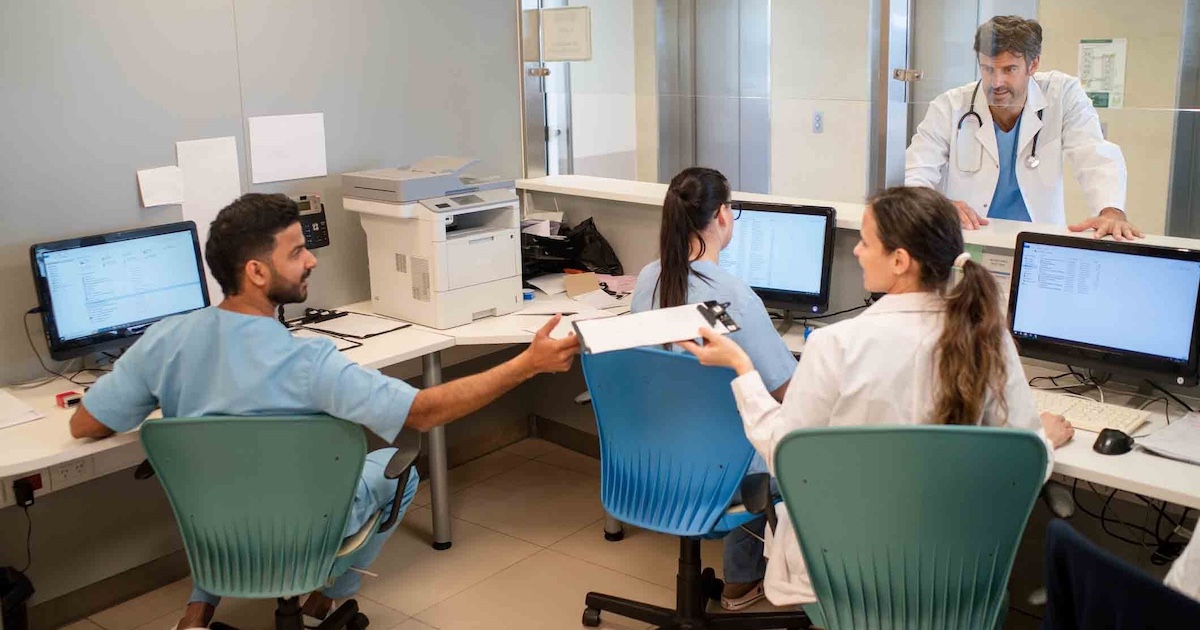In a busy hospital, the overhead paging system is often as effective – and annoying – as a bullhorn. It gets the job done, enabling clinicians to reach their colleagues-on-the-go in the span of a few minutes.
But it's also noise pollution, pure and simple. It sets patients' teeth on edge, interferes with conversations and hurts staff morale. In some instances it might even affect clinical outcomes, by harassing a doctor or patient enough to forget or overlook something.
The Inspira Health Network, a three-hospital system based in Bridgeton, N.J., that reaches out to more than 60 healthcare endpoints, recently tackled this issue with its Quiet Hospital Initiative. The goal was to reduce the estimated 150 overhead pages a day, improve patient satisfaction and staff morale, and find a better way for clinicians to communicate and share data in real time.
Naturally, they chose the smartphone.
"Everyone already has one," says Thomas J. Pacek, the health system's vice president and CIO, who'd considered other types of pagers and even a badge system before settling on a secure messaging platform from Practice Unite. "They use it all the time for personal reasons."
Working with Practice Unite and Pursuit Healthcare Advisors, Inspira officials established a system whereby doctors and nurses could text each other securely through an app, or send a message to a colleague's extension that would trigger a callback. The auditable system not only helped reduce noise and improve communications in the three hospitals, but enabled better communications with the system's 150+ residents and medical offices.
Getting buy-in from the health system's many residents and outlying clinics was a key factor in the project's success, says Pacek.
"They don't comply with anything you want them to do," he half-joked. "So we needed an easy and compliant solution that they would like. It was really, really, really critical that we get their buy-in."
Inspira isn't the first health system to switch to a mobile messaging platform that takes advantage of the smartphone, but it's a nice example of what providers are doing nowadays to not only boost care coordination, but improve the hospital environment. Pacek says the Practice Unite platform is now mandatory for medical staff, and overhead pages are only allowed in emergencies. That averages out to about two pages per day now (the system's chief medical officer checks the audit log on a regular basis and discusses each page with staff).
There are other benefits as well. Response times and patient consults have improved, the electronic medical record is updated more frequently and patient stays are reduced.
The platform has also been adopted by affiliated medical offices, in some instances replacing their answering services with the system's own operators, which cuts expenses, frees up time in the doctors' offices and event prevents layoffs.
Pacek says staff morale has improved and patient satisfaction rates have risen as well, though it's too early in the Quiet Hospital Initiative to see those conclusions confirmed in statistics.
Adam Turinas, Practice Unite's CEO, says health systems are jumping on the "quiet hospitals" concept as a way of introducing secure messaging platforms to staff - because reducing noise and confusion in a busy environment appeals to everyone. Tie that in to the ubiquitous smartphone, and it becomes readily adoptable (and adaptable).
"A lot of the challenge for deploying secure texting lies in adoption," he said. "This is a complicated platform – it can be as complex as deploying an EHR. It needs a lot of planning. Using something like the Quiet Hospital Initiative is a great way to start" because it's tied into a quick and understandable outcome.
For Pacek, that outcome hit home. He remembers trying to tape a video for Microsoft – and constantly getting interrupted by noisy pages.
"I can understand why the patients were angry," he recalls. "I was going crazy."
Related articles:
Is your messaging app really secure?


